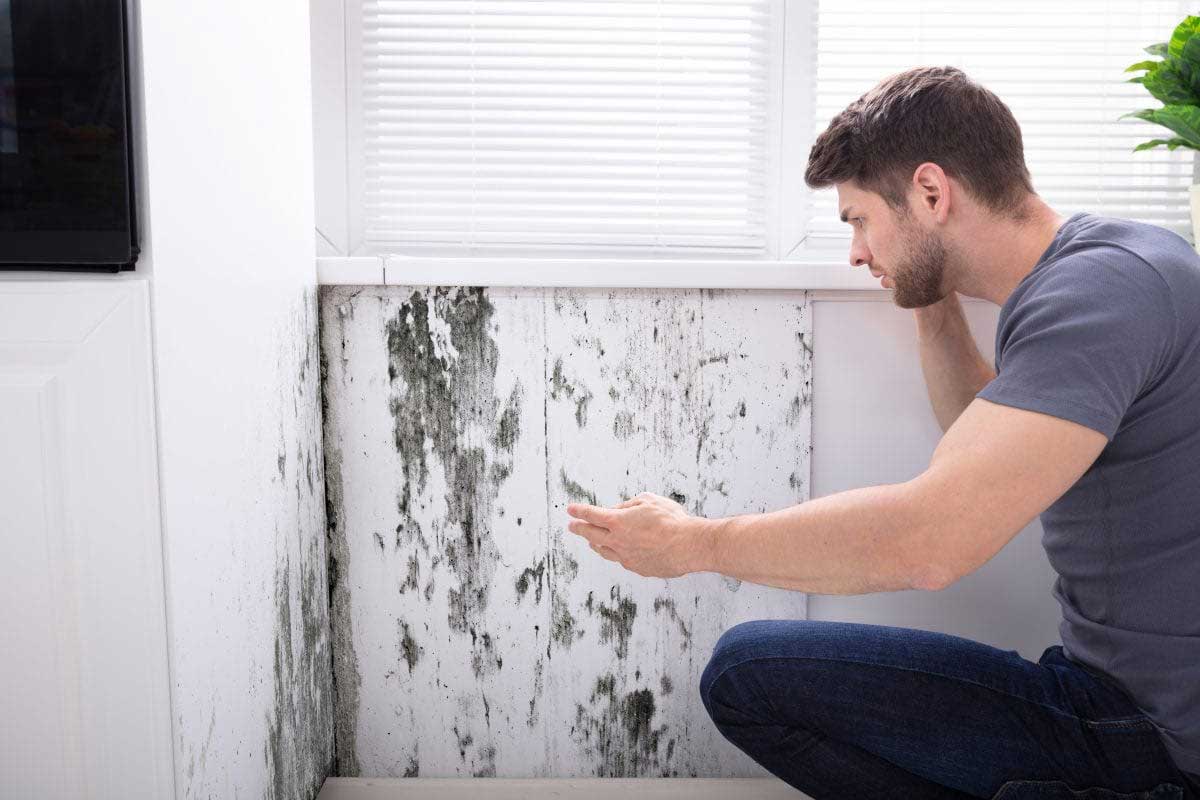A UK news report has shown how families in the country are being left to live in dilapidated, uninhabitable homes due to rogue landlords not fixing housing disrepair. Leaks, damp and mould are all rife in tower blocks across the UK.
A recent ITV News investigation has found that families in the UK are suffering with damp, dangerous, and mould-ridden homes as a result of landlords refusing to fix property disrepair.
Their initial report was related to a specific tower block in Croydon, which experts described as some of the worst disrepair they had ever seen. The report followed residents and their battles with mould affecting their belongings, and even affecting their breathing. One mother was extremely worried for her son’s health and general wellbeing.
After the report, the news channel was then flooded with other examples from across the country of similar disrepair and landlords who ignore requests by their tenants to fix the problems. In West London, for example, Oumou Bah told ITV news of his living conditions, where he lives with his sister and mother in a two bedroom council flat. The bedroom where the sister sleeps is covered in thick, black mould.
Astonishingly, they have had no electricity or lights in their bathroom for five years due to the electricity needing to be switched off after Mr Bah’s mother had been electrocuted. Instead of fixing the electrical problem, the landlord simply turned the electricity off.

A Growing Housing Disrepair Crisis
While the Hammersmith and Fulham Council later apologised to the family, this is simply one case in a growing disrepair crisis. In total, 400 people got in touch with ITV about their own case of landlords being negligent.
In the UK, there is a Housing Ombudsman who help tenants understand the complaints process. The Ombudsman has since launched an investigation into the terrible conditions of the block of flats and the “disgusting” social housing conditions that many residents find themselves in.
Richard Blakeway, from the Housing Ombudsman, stated that mould and damp in someone’s home can have a “significant” impact on their health, and could even effect their overall life chances. He said:
“I want us to make far-reaching recommendations to promote greater understanding and learning, helping landlords develop their approach to the benefit of residents.”
Public reaction to the reports was understandably emotional. Social media users labelled the conditions and the landlords as “disgusting”, “horrible”, and “heart-breaking”.
Sick Grandmother Living in Conditions So Unsafe She Ordered To Leave By Her Doctor
Another awful story of housing disrepair causing life changing damage saw Carol McGuiness and her son Michael, living with a rat infestation, damp and mould, leaks, faulty electrics, and cracks in the building structure.
The disrepair in Ms McGuiness’ home was that bad that her doctor ordered her to move out of her home due to the potential impact on her health. Her landlord had been asked multiple times to carry out the repair work.
While the grandmother and son took legal action last year, which they won, the housing association failed to carry out the works which they had promised to do. In total, there 58 issues within the home that needed fixing.
Carol stated:
“After initially moving back home and the works starting up, it all stopped again, and my doctor told me it simply wasn’t safe for me to stay there.”
What To Do If You’re Living In Disrepair
Living in disrepair can be one of the most stressful periods of anyone’s life. No one deserves to live in damp, dangerous, unliveable homes. This is particularly true if your social landlord or housing association is refusing to carry out the necessary repairs, or is simply ignoring you.
Luckily, there is help out there for tenants. There are a number of steps tenants can take to ensure that their landlord listens and carries out the needed repairs.
First of all, tenants should gather as much evidence as they can. This includes photographs of the disrepair, videos, receipts of any damaged belongings, medical notes from your doctor if the disrepair is affecting your health, and any correspondence between yourself and your landlord.
Next, if your landlord is still not listening, you can go to your local Environmental Health Officer. They can come to your home and decide if your landlord needs to act on the disrepair.
Finally, if your landlord still won’t budge, much like those in Croydon or Ms McGuiness’, then you can seek out the help of a housing disrepair solicitor. A disrepair claim solicitor, like DisrepairClaim.co.uk, can help you tackle your landlord once and for all, by using all of the evidence that you have gathered, with some evidence of their own, and use it to force your landlord to carry out the repairs.
They can also help you claim compensation for any loss of property, personal injury, and pain and suffering caused as a result of the disrepair. Many will also act on a No Win, No Fee basis, meaning if your claim is rejected you will have no legal fees to pay.

